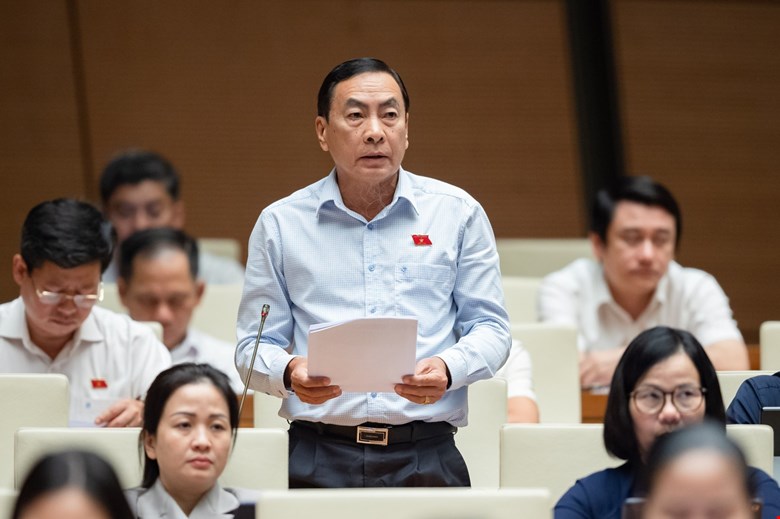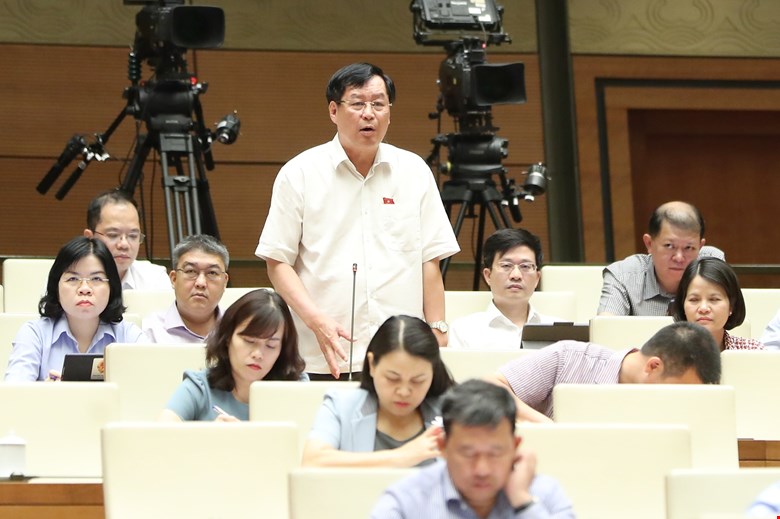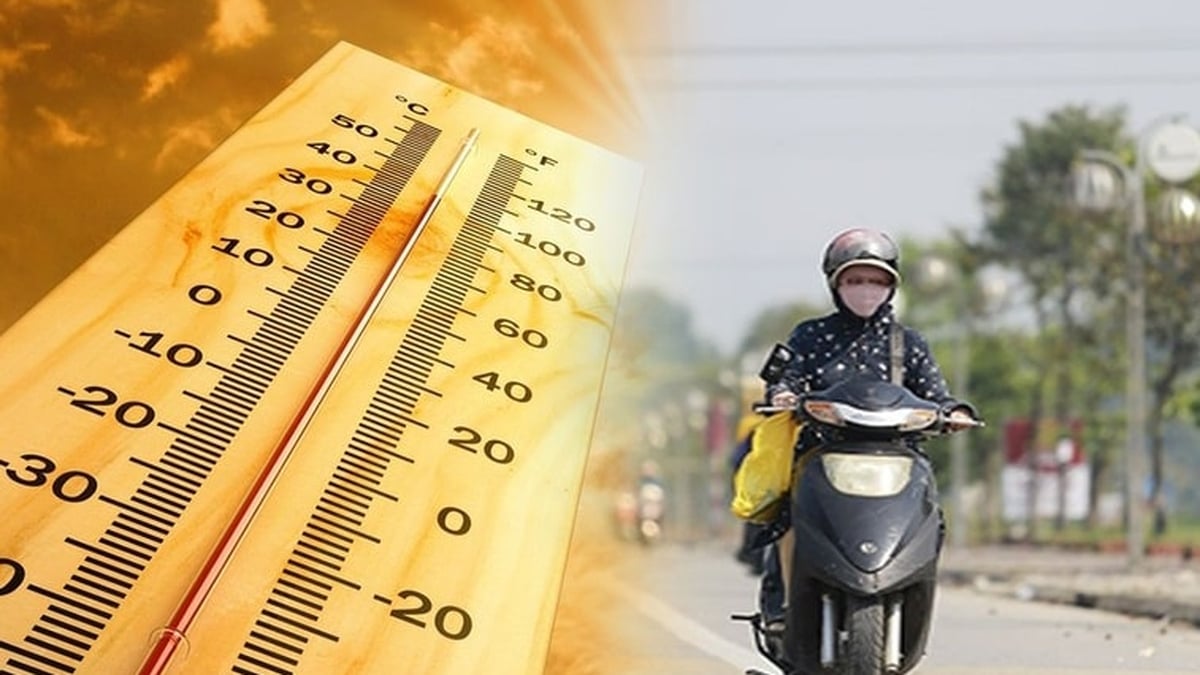Integrate important documents into ID
On the afternoon of June 22, continuing the 5th session, the National Assembly discussed in the hall the draft Law on Citizen Identification (amended).
Speaking, delegate Nguyen Hai Dung ( Nam Dinh delegation) said that report No. 311 sent by the Government to the National Assembly clarified the opinions of the delegates, and the explanation was very satisfactory.
Discussing further about the necessity and value of identity cards under the new Law, according to Mr. Dung, we are currently building a digital government, developing a digital economy , building a digital society and digital citizens. This is an inevitable trend not only in Vietnam but also globally.
Applying technology in such ID cards is very convenient for people to participate in civil transactions and convenient for people to travel.
According to Mr. Dung, integrating current paper documents into the ID card is very reasonable. For example, they are preparing to integrate health insurance cards, social insurance cards, driver's licenses, birth certificates, marriage certificates, and the Law is also being drafted to allow the Prime Minister to decide which documents to integrate into the ID card.
“If we integrate the driver’s license into the ID card, when the traffic police check on the road, they will show the ID card instead of taking out the driver’s license. Because in the wallet, there are many types of cards. Therefore, this is very reasonable and convenient for the people and the traffic police,” Mr. Dung said, adding that the strict regulation in the Law is that only documents can be integrated into the ID card when the Law stipulates, which is very difficult and time-consuming. Therefore, he agrees with letting the Prime Minister decide which documents to integrate into the ID card.

National Assembly Delegate Pham Van Hoa.
Participating in the discussion, National Assembly Deputy Pham Van Hoa (Dong Thap delegation) said that regarding the regulation on granting identity cards to people of Vietnamese origin without nationality living in Vietnam, according to reports, there are nearly a million people permanently residing in our country but do not have identity papers.
Most of them have economic difficulties, no social security policies because they do not have permanent residence, their children cannot go to school because they do not have birth certificates, leaving a burden on society.
“Living in a peaceful country but living illegally, if a problem occurs, we will not know where this person is, it will be difficult to track him down because there are no records, very inconvenient,” Mr. Hoa acknowledged and said that issuing an identity card to this person is very necessary.
However, delegates also noted that the implementation process must be cautious, objective, and procedures must be simple.
Regarding citizen information regulations, Mr. Hoa said that there is too much information, so duplicate and unnecessary items should be redesigned, such as blood type, current residence (citizens with temporary residence), ID number if they already have a citizen ID, date of death or disappearance, and temporary absence status.
According to him, it is necessary to specify which information must be updated and which information is only applicable to individual cases.
“For information in the occupational identification database, DNA needs to be considered because occupations can change over time, not everyone has their DNA tested, if testing is required it will be very expensive,” said Mr. Hoa.
Regarding the information on the ID card, the delegate proposed to adjust some of the content on the card such as: place of birth instead of place of birth registration, place of permanent residence instead of place of residence, place of issuance is the Provincial Police instead of the Ministry of Public Security.
According to the delegate, it is not necessary to temporarily withhold the ID card of a person who is serving a decision to be sent to a reformatory school, compulsory education facility, or compulsory drug rehabilitation facility, because these subjects have not lost their citizenship rights and can still use their ID card for transactions according to the provisions of law.
The regulation on issuing electronic ID cards requires time according to the roadmap because currently not all citizens use smartphones, and if they do, they may not use the internet, and some places do not have internet yet.
According to the delegate, it is necessary to consider charging people to change their citizen identification cards to identity cards because changing the name on the identity card is according to the law, not the people's fault. Currently, millions of citizen identification cards have been issued.
Consider renaming the Identity Law
Participating in the debate with many delegates about the name of the Law on "citizen identification" or "ID", National Assembly delegate Tran Cong Phan (Binh Duong delegation) said that the draft Law on Citizen Identification is still being discussed, and there is no word "ID Law" yet.

National Assembly Delegate Tran Cong Phan.
"The National Assembly will have to pass a law soon to become an ID card," said Mr. Phan, emphasizing that the name of the Citizen Identification Law cannot be changed to the Identification Law to expand the scope of regulation.
Also according to Mr. Tran Cong Phan, the drafting agency stated that there are 31,000 people of Vietnamese origin living in Vietnam but their nationality has not been determined.
"The Constitution stipulates that Vietnamese citizens are people with Vietnamese nationality. We issue citizen identification cards to show that they are Vietnamese citizens. We have to manage these 31,000 people, but we must have a different type of card for them to distinguish them, because they are not yet Vietnamese citizens.
We manage and create conditions for them, but they are not granted citizen identification cards like Vietnamese citizens. Because of those 31,000 people, more than 81 million people share one card, it is not acceptable to equate them," said Mr. Phan.
Further debating, delegate Le Hoang Anh (Gia Lai delegation) expressed agreement with the argument of delegate Tran Cong Phan.
He said that the word citizen specifically refers to a person, while the word identity card does not specifically refer to a person. Because, currently, even crops and livestock also lead to traceability and identification for each type of plant and animal.
"If anyone has participated in or observed dog and cat raising groups or associations, they all have identification and identification for their pets. Therefore, further consideration is needed," Mr. Anh said.
Regarding the reason for granting identity cards to people of Vietnamese origin living in Vietnam but whose nationality has not been determined, he suggested that careful research is needed… .
Source




















































![[Maritime News] More than 80% of global container shipping capacity is in the hands of MSC and major shipping alliances](https://vphoto.vietnam.vn/thumb/402x226/vietnam/resource/IMAGE/2025/7/16/6b4d586c984b4cbf8c5680352b9eaeb0)













































Comment (0)